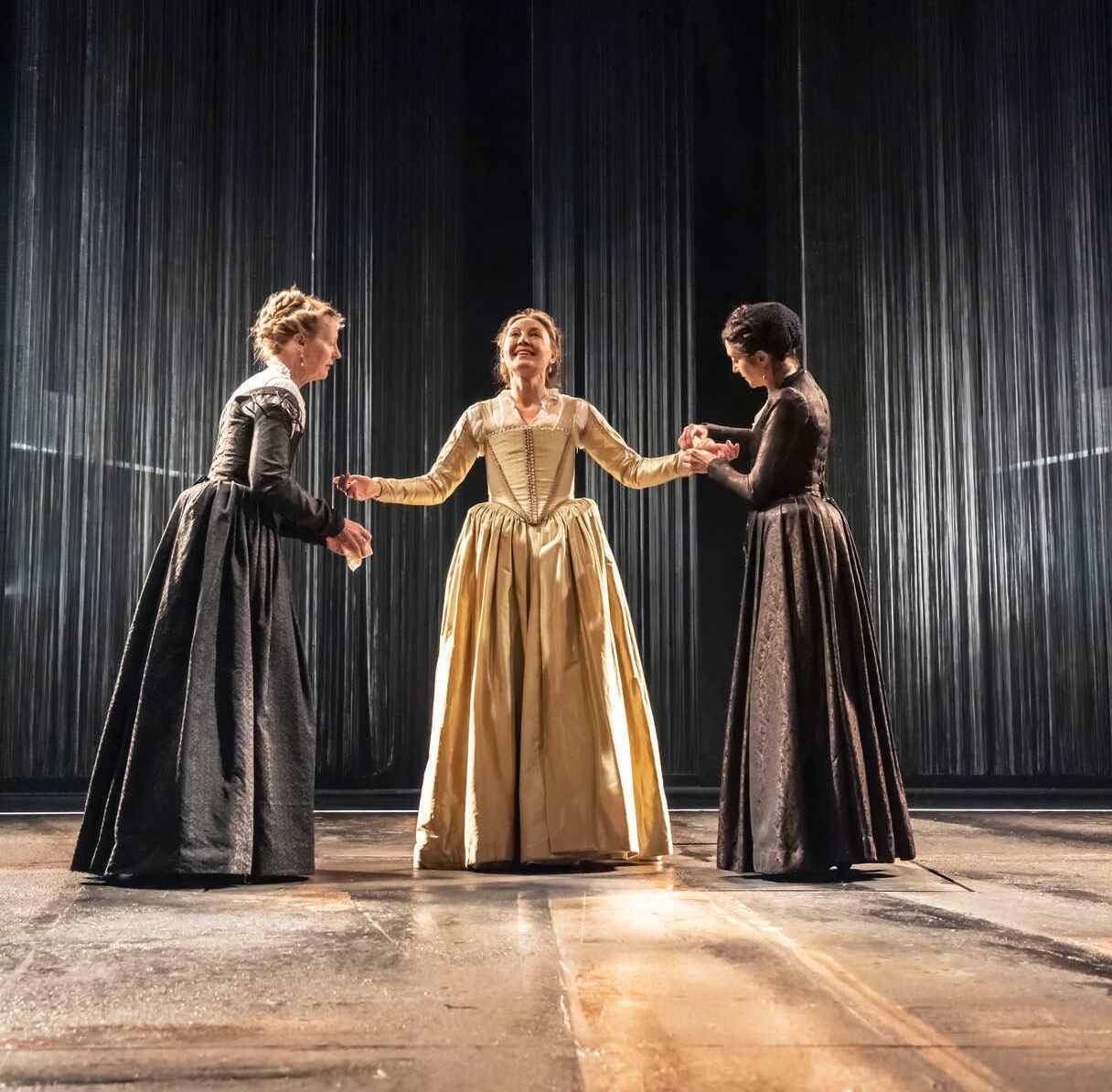A powerhouse production that reframes the action of Othello away from male jealousy and towards the horrific realities of the violence enacted on the female leads

Othello | Royal Shakespeare Theatre, Stratford-upon-Avon | 24th October 2024
Reviewed by Paul Knowles and Sam Cassells
In its opening minutes, the new RSC production of Othello offers a traditional and faithful depiction of the play. As actors walk on to the stage garbed in Shakespearean costume, a full ensemble Venetian chorus sings an ominous warning, hinting at the tragedy that is about to unfold. The chorus is then replaced on stage by the poisonous Iago (Will Keen) who is eager to get on with his task of whispering falsehoods into Othello’s (John Douglas Thompson) ear. It is then that the audience questions the startlingly new element of this production: the framing device of a vertical-metal cage (represented in multiple guises both upstage and downstage) which enshrouds the female characters and their movements.
From the moment the lights come up and the Venetian chorus appear from out of the vertical-metal cage, the audience’s gaze is drawn towards this framing device. The cage’s startling framing of the female characters in the play encourages the audience to consider and reconceptualise how stories of violence against women have been told and framed through a male lens and male reasoning. This is powerfully captured on stage when Iago slanders Desdemona’s character to Othello in the foreground, with her alleged infidelity and betrayal with Cassio being portrayed in the background through the frame of the vertical-metal cage, positioned behind Iago and Othello.
The strength of this new RSC production is that it offers a fresh and compassionate insight into the plight of the two female leads, which are played with humour, intelligence and strength by Juliet Rylance (Desdemona) and Anastasia Hille (Emilia). The production humanises the intimacy of the female friendship that exists between them, captured beautifully in the Willow song scene where Emilia helps undress Desdemona from her court attire as part of their nighttime ritual whilst offering her real-world advice on the vanity of men and the power imbalance that exists between husbands and wives. This advice transforms into desperate pleading as Emilia realises Desdemona’s intention to sacrifice herself to Othello and begs her to reconsider. The play’s final thirty minutes are breathtaking – they shock, terrify and move the audience to tears (including some of the most bold and innovative telling of Shakespeare we have watched in the past few years). The assassination of Desdemona is especially shocking: the stage goes black and we hear Desdemona’s frantic prayers and desperate physical struggles as Othello chokes her to death. Emilia’s discovery of Desdemona’s body is truly heartbreaking as she refuses to be cowed by Othello and dismisses his justifications for her murder as the ramblings of a paranoid fool. Her steadfast refusal of his claims is a powerful act of female solidarity and ensures that he is not allowed to sully Desdemona’s name in front of the men of court. The depiction of Emilia’s murder as an act of rage-filled revenge — committed by Iago in a burst of explosive anger in response to her challenge to his authority whilst revealing how he has plotted Othello’s destruction — reinforces the play’s central exploration of violence against women.
Tim Carroll’s choice to frame the female character’s actions through the walls of vertical-metal cage is a triumph. It refocuses the audience’s attention away from the male leads and onto the female leads. This culminates, in Carroll’s version of the play, in the denial of power to Othello’s final monologue — the power of justification is diminished. The male reasoning of being made a cuckhold (used by Othello to explain his act of horrific violence against Desdemona) is exposed as an act of cowardice to protect his pride and reputation. His final speech is exposed as merely a political tool, his final attempt to be cast in a more positive light by his fellow men in the Venetian Court. It is to the credit of this RSC production that Othello’s final words carry no weight with the audience. The audience at the end of the show are left to consider difficult questions around the current epidemic of violence against women. The ability to spark discussion surrounding how historical violence inflicted against women has been depicted, whilst simultaneously asking how as a contemporary society we tell these stories free from male framing and justification, is a real strength.
Over the course of the play’s three-hour runtime, moving performances by the two female leads presents the audience with the brutal realities of the violence that Othello and Iago inflict upon their wives. This new RSC production of Othello casts searing light on the sometimes-overlooked female leads and their tragic demise.
Reviewed by Paul Knowles and Sam Cassells
